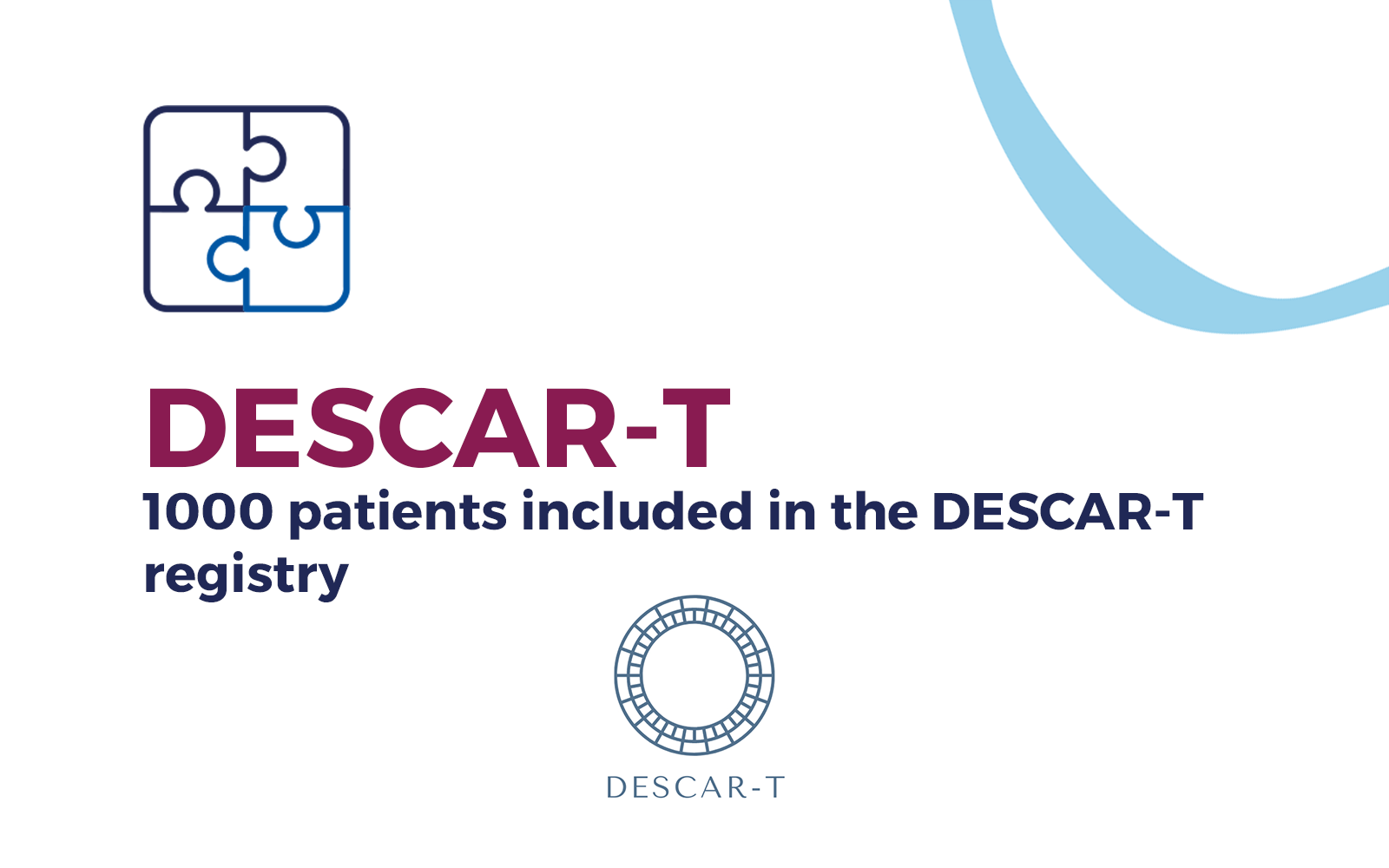1000 patients included in the DESCAR-T registry
DESCAR-T: the French CAR-T Registration and Monitoring System
Last September, the 1000th patient of the DESCAR-T registry was registered, after a start in 2019, at the request of the French National Authority for Health (HAS). DESCAR-T is the result of a collaboration between several French academic cooperative groups. These groups are dedicated to clinical research: LYSA, GRAALL, SFCE, SFGM-TC and IFM. The DESCAR-T registry is a major breakthrough in the follow-up of patients with lymphoma, myeloma or acute lymphoblastic leukemia.
The DESCAR-T registry brings together experts in several hematologic malignancies around the same type of treatment, CAR T-cells, white blood cells reprogrammed in the laboratory to recognize and destroy cancer cells. DESCAR-T aims to respond to requests from health authorities, industry and scientists regarding the use, efficacy and adverse effects of these treatments.
An analysis of the use of CAR T-cells![]()
![]()
![]() DESCAR-T is part of a Research Not Involving the Human Person (RNIPH). Indeed, the medical data in the medical file generated during the care provided for a patient are collected. This clinical data is then correlated with biological or imaging data. This result provides a complete overview of the use of CAR T-cells in real life for a given blood disease.
DESCAR-T is part of a Research Not Involving the Human Person (RNIPH). Indeed, the medical data in the medical file generated during the care provided for a patient are collected. This clinical data is then correlated with biological or imaging data. This result provides a complete overview of the use of CAR T-cells in real life for a given blood disease.
In this context, an important milestone has been reached with the one thousandth patient included in the DESCAR-T registry. « We are delighted to reach the thousandth patient included in DESCAR-T. […] DESCAR-T allows us to meet regulatory requirements and to have data to conduct innovative research projects », expl
ains Professor Roch Houot, Head of the Haematology Department at the University Hospital of Rennes, co-coordinator of DESCAR-T.

The use of CAR T-cells is a major advance in the therapeutic management of blood cancers. It is also a profound change in the organisation of care and the patient process. These treatments require close collaboration between all those involved in patient care, as well as institutions and the pharmaceutical industry concerned Gilead, Novartis, and soon BMS.
